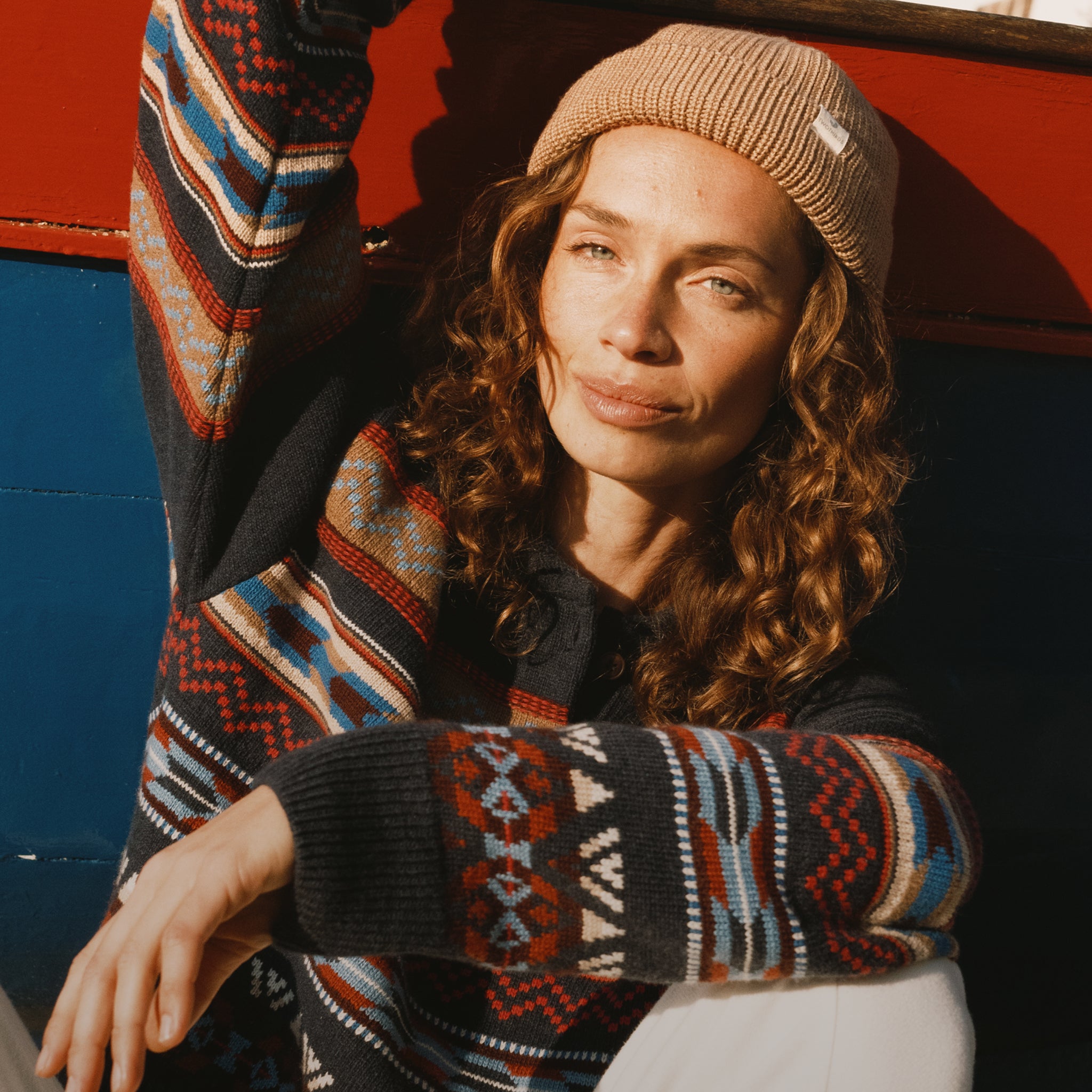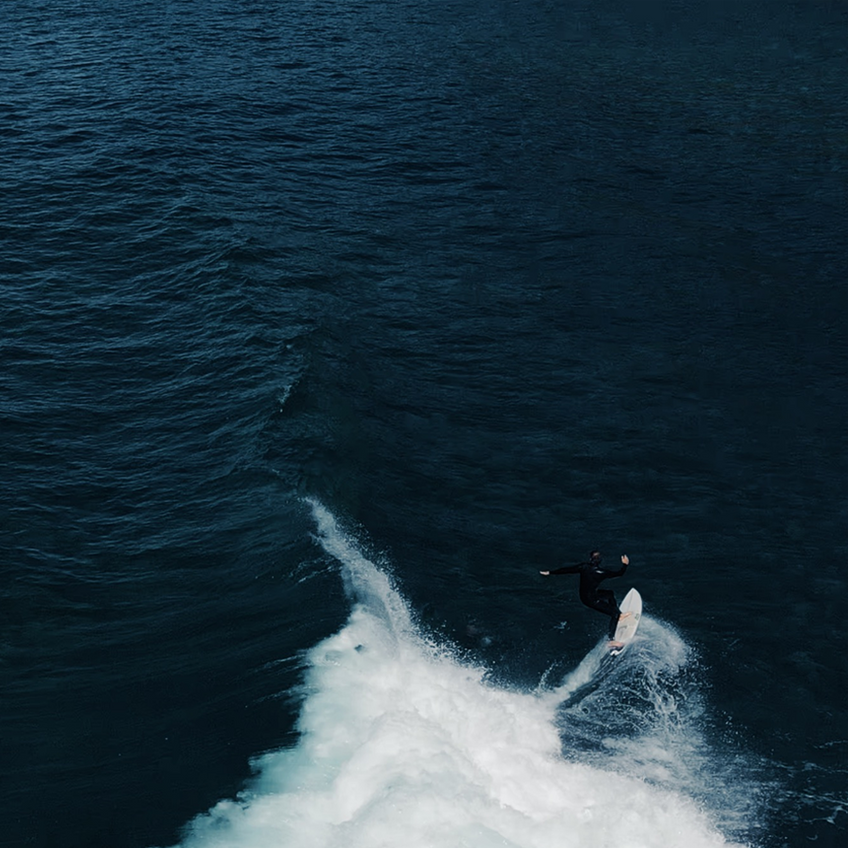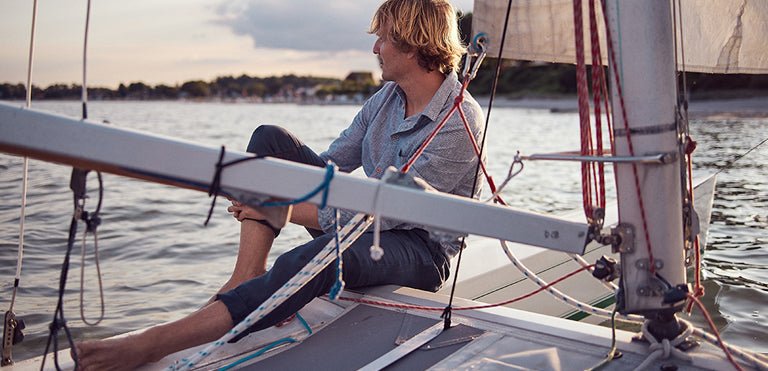Imagine forests breaking onto beaches that slope into water the colour of crystal. Vintage beach chairs line up along the bay while not so far offshore, seals and porpoise roam. Now picture a house overlooking the bay and a man sitting by his window like a patient lighthouse keeper, devoted to his work. This is Sierksdorf, Germany and the man is Lutz Schwenke’s grandfather.
Lutz, the founder of TWOTHIRDS explains that “in the 1960s, my grandparents bought a house next to the Baltic Sea, about an hour from Hamburg.” He remembers that everyday “[his] grandfather would paint a view of the sea, and the sun setting over it”. That he didn’t tire of this activity might testify to the beauty of the Baltic region, “it was of course the same scene every day, but then a lot can change here.”
Colours pass across the sky as the weather turns in a matter of hours, darkening, deepening and then disappearing altogether like the ebb and flow of a non-existent tide. Thanks to the geography of the Baltic, the sea barely goes in or out. “And it’s very shallow here,” Lutz adds, “you can walk out 100 metres and still be standing up! It almost seems like a lake at times. The depth means you get this very clear and warm water”, though that - it has to be said - is season dependent.



Lutz recently went back to Sierksdorf, reunited not only with his brother but with the boat they’ve used since they were children. Though small in stature, the Catamaran is a fast mover that belongs in this unusual environment, where the sea is as calm as the people who sail upon it. Lutz details, “I mainly remember having really deep conversations on the boat. Maybe you become more reflective away from the shore.” Their sailing adventures were the catalyst for a lifelong love of the sea. He says “I grew up on the water - this sea really formed my family as a whole, I always felt its presence”. As they got older, they did however have to confront the Baltic’s crippling lack of surf. The brothers opted for a hybrid sport: “we used to take surfboards and tie them to the back of the boat” he remembers, catching a strong wind to carry them at high speeds, “which is a pretty eco-friendly form of water skiing!” he laughs.




Life on land was fuelled by the comfort of wood fires nestled into empty landscapes, in a village that will always follow its own cues. “My father sometimes watches the fishing trawler come in, cloaked in seagulls” Lutz muses, “then he hops on his bike - hardly anyone uses cars around here - and comes back twenty minutes later with freshly caught cod.” Life is slow, patient, natural, with the sea playing a leading role.
There is just one problem. Like much of the world’s ocean - this sea is under pressure and has become a victim of its own individuality.


The Baltic is no ordinary sea. Due to the narrow gateway into the Atlantic Ocean and the huge network of rivers that flow into the basin, it is simultaneously a salt and freshwater environment. This, and slow moving waters make it highly sensitive to pollution. Director of science and strategy at the conservation group Oceana, Allison Perry, explained “it actually takes about 30 years for the water that is in the Baltic to be fully exchanged”, so the effects of human activity have been felt since the 1950s: “[fertilisers] that are flowing into the water are accumulating there and it takes a very very long time for them to be diluted. This drives algal blooms that have a widespread impact.” The algae provoke Baltic dead zones - where the oxygen in the water is too low to support life - now stretching across an area double the size of Denmark. “It’s a seasonal issue, but worryingly it is also something that’s linked to climate change. With rising temperatures, you also expect it to be more of a problem,” Allison notes.
Oceana are working to protect the areas that do still thrive. One of many projects is located in “The Sound, which is shared between Denmark and Sweden, it’s a very special place, a biodiversity hotspot where there has been a ban on bottom trawling since the early 1930s.” It contains ecosystems that “you just don’t find in adjacent areas.” Creatures with curious names, like Horse Mussels and Haploops live among reefs and kelp forests.
For such species, for the 85 million people who live in the region, for Lutz and his family, the Baltic will always be home. Every home is worth defending, none more so than the sea.










